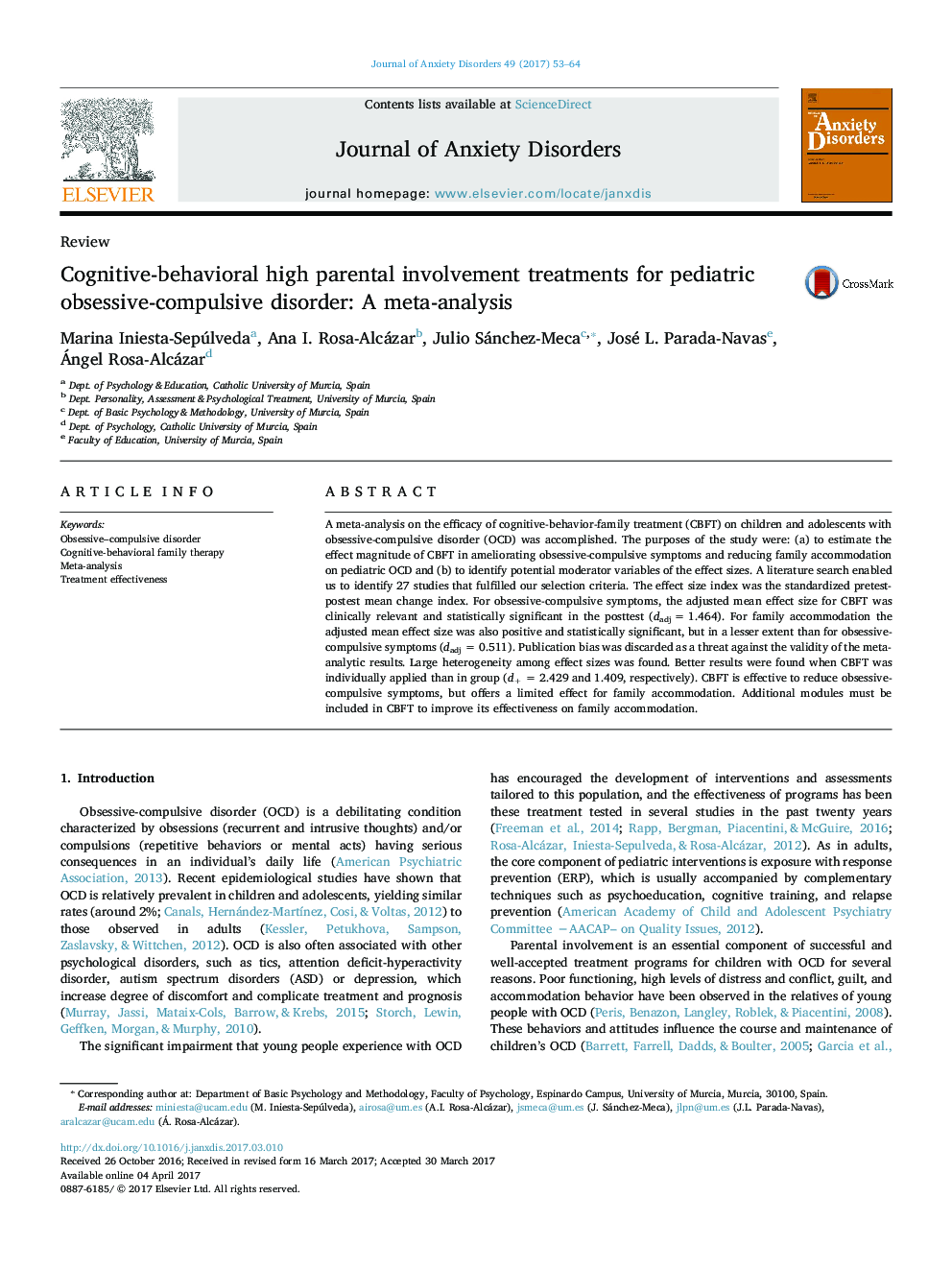| Article ID | Journal | Published Year | Pages | File Type |
|---|---|---|---|---|
| 5038899 | Journal of Anxiety Disorders | 2017 | 12 Pages |
â¢CBFT exhibited a large effectiveness for reducing obsessive-compulsive symptoms.â¢CBFT exhibited a medium effectiveness only for reducing family accommodation.â¢Individual CBFT outperformed group CBFT.â¢No differential efficacy was found for the different CBFT techniques on OCD children.â¢No differential efficacy was found for the different CBFT techniques on parents.
A meta-analysis on the efficacy of cognitive-behavior-family treatment (CBFT) on children and adolescents with obsessive-compulsive disorder (OCD) was accomplished. The purposes of the study were: (a) to estimate the effect magnitude of CBFT in ameliorating obsessive-compulsive symptoms and reducing family accommodation on pediatric OCD and (b) to identify potential moderator variables of the effect sizes. A literature search enabled us to identify 27 studies that fulfilled our selection criteria. The effect size index was the standardized pretest-postest mean change index. For obsessive-compulsive symptoms, the adjusted mean effect size for CBFT was clinically relevant and statistically significant in the posttest (dadj = 1.464). For family accommodation the adjusted mean effect size was also positive and statistically significant, but in a lesser extent than for obsessive-compulsive symptoms (dadj = 0.511). Publication bias was discarded as a threat against the validity of the meta-analytic results. Large heterogeneity among effect sizes was found. Better results were found when CBFT was individually applied than in group (d+ = 2.429 and 1.409, respectively). CBFT is effective to reduce obsessive-compulsive symptoms, but offers a limited effect for family accommodation. Additional modules must be included in CBFT to improve its effectiveness on family accommodation.
